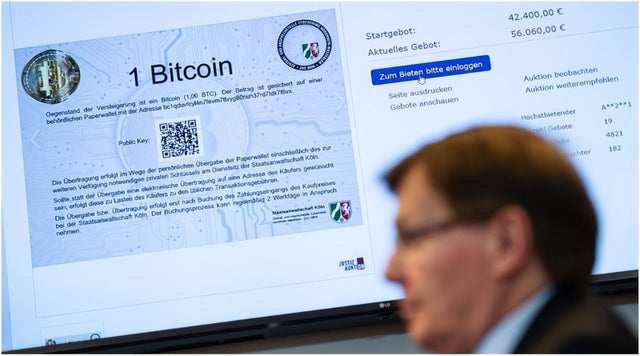Germans are embracing Bitcoin massively, and there are some good reasons for that

 |
The G7 country with a population of 83 million and a GDP of 3.3 trillion is throwing itself at Bitcoin. Why? Investors and news media who focus every day on the price fluctuations of crypto currency Bitcoin sometimes lose sight of how quickly the digital currency is coming into use around the world. Central American El Salvador, which has been using Bitcoin as official currency since June, issuing a Bitcoin bond worth $1 billion and even planning a veritable "Bitcoin city," is far from the only country possessed by the crypto currency. In 2019, one in five nodes of the Bitcoin system were already maintained in Germany. Such a node, or node, is a computer that maintains a copy of Bitcoin's entire ledger and thus forms a switching point of the blockchain behind the crypto currency. Since September, however, it has become clear that Germany has even more nodes than even the United States. The U.S. is the country that received the most expelled cryptominers from China and traditionally maintains the most nodes. Thus, Germany now holds the largest share of nodes in the Bitcoin network. The mass adoption of Bitcoin in Germany remains under the radar for now but has already become an irreversible fact. Indeed, the Germans have a number of good reasons to hold onto the crypto currency. Deutsche Börse is miles ahead of Wall Street when it comes to crypto For starters, the German authorities are looking at the crypto currency with an open mind. This is also reflected in the way Bitcoin is defined there. On July 1, Germany passed a law that allows 4,000 Spezialfonds, popular investment funds, to invest 20 percent of their funds in crypto currencies. This allows thousands of institutions, and therefore German investors, to invest money in crypto such as Bitcoin. Crypto currencies, meanwhile, are also fully established within German exchange products. There are several ETPs (exchange traded products, or exchange traded products) on the German stock exchange that follow the Bitcoin spot market. In late November, investment manager Invesco launched another ETP with Deutsche Börse for spot trading in Bitcoins. Meanwhile, the U.S. stock market watchdog (SEC) has yet to let a similar product through for Wall Street. Only an ETF (index tracker) for trading Bitcoin futures (a derivative) was allowed to see the light of day for the time being. Buying crypto via the trusted banking app German banks are also taking a particularly open approach to crypto currencies. This week alone, three major German banks announced plans to allow customers to purchase Bitcoins. On Monday, Sparkasse, a local bank operator with 50 million customers, announced that it is working on a pilot project where savers can purchase and track crypto through the bank. Commerzbank and Volks Bank, two German banking giants, made a similar announcement on Tuesday. This means that it will soon be possible to own crypto in almost all of Germany, without downloading obscure apps where you have to go through an intensive Know Your Customer process before you are allowed to purchase digital assets. So those who want to use crypto in Germany will soon be able to start simply through their trusted bank app. Painful memories of hyperinflation A final factor driving Bitcoin adoption in Germany may be inflation within the country and the Eurozone. As such, Germany has a painful history with inflation. During the time of the Weimar Republic, the value of the German mark was demolished by so-called hyperinflation, which caused tremendous political instability. Indeed, after World War I, the Weimar Republic was saddled with a huge debt mountain, and the Germans, who had used up their gold reserves, had to repeatedly purchase foreign currency with German marks. This process created a negative feedback loop and drove unprecedented inflation in the country. Maintaining a stable currency is therefore still one of the top priorities of German financial policy today. Meanwhile, the annual inflation rate in Germany has stood at around 5.2 percent since the end of November. That is the highest rate since the country's reunification in the 1990s. German economists are talking this month about an inflation rate that is no longer "transitory" and could even increase further in 2022. Conclusion: These are all reasons for Germans to invest more and more money in Bitcoin, a crypto currency designed to be deflationary with a built-in "true" scarcity of 21 million units (each divisible by 100 million Satoshi's) and high transaction costs. Bitcoin may well be the ultimate hoarding tool for many German investors and companies to shelter from a slow economic downturn. submitted by /u/RefugeeDutch_Syrian |